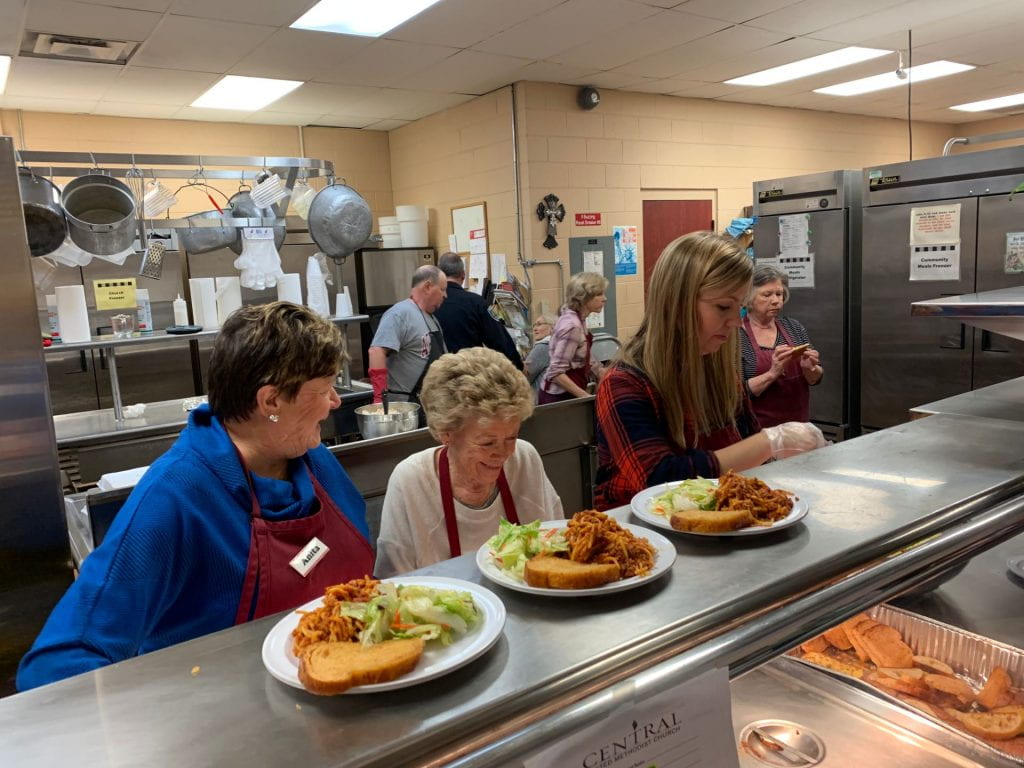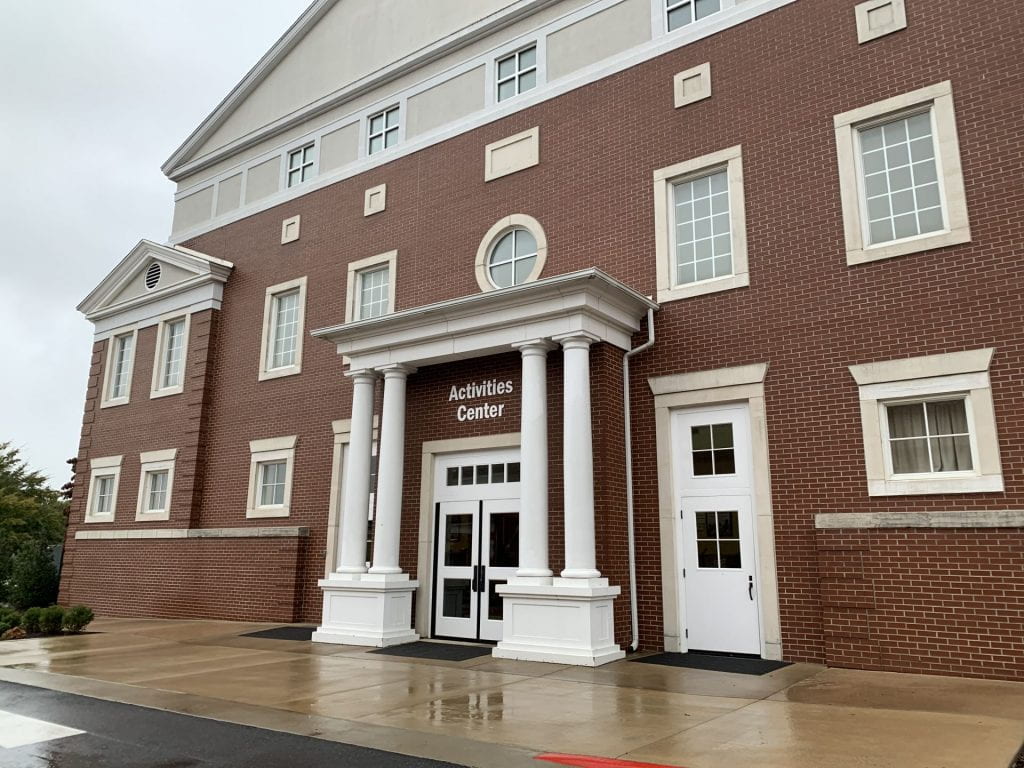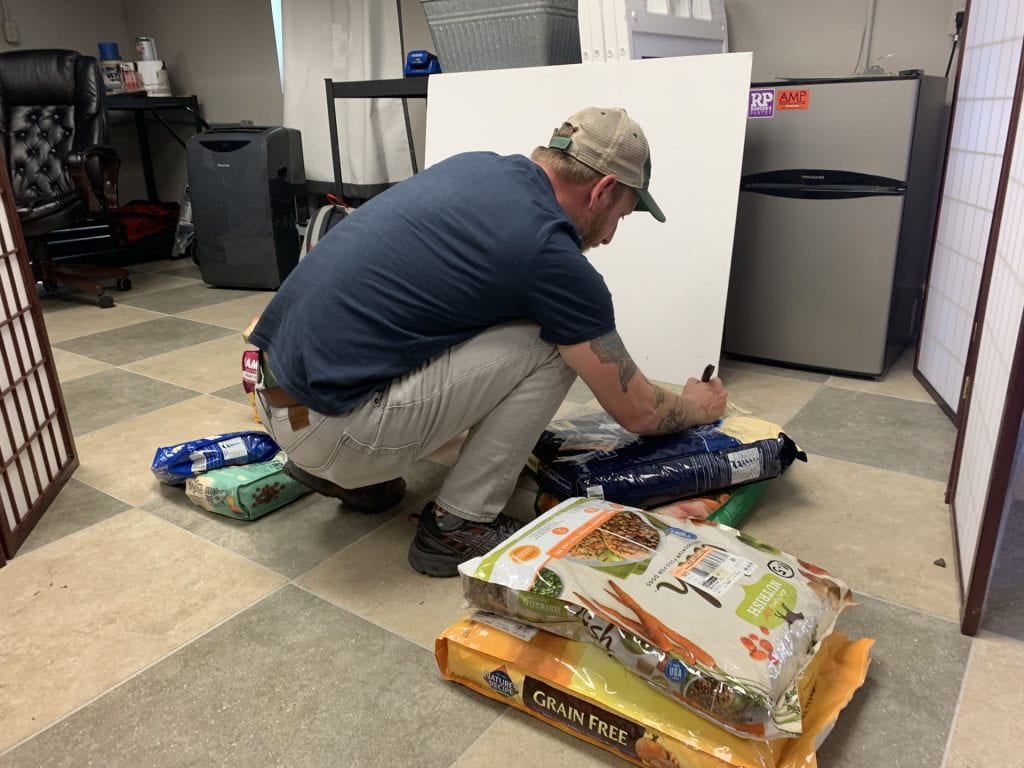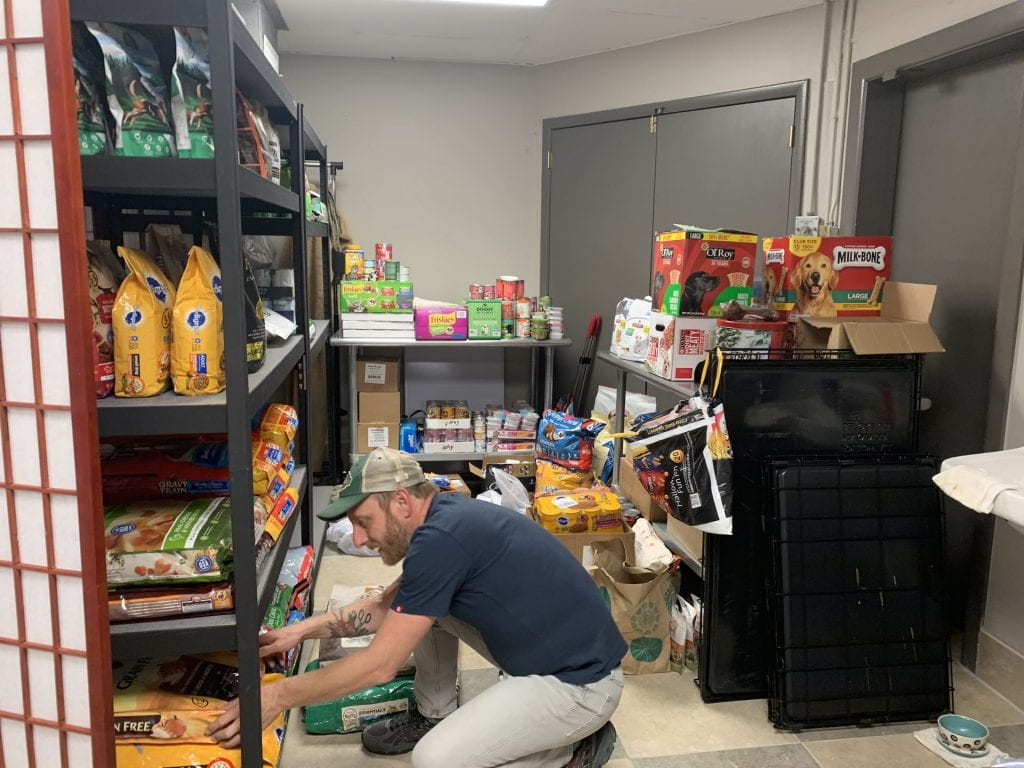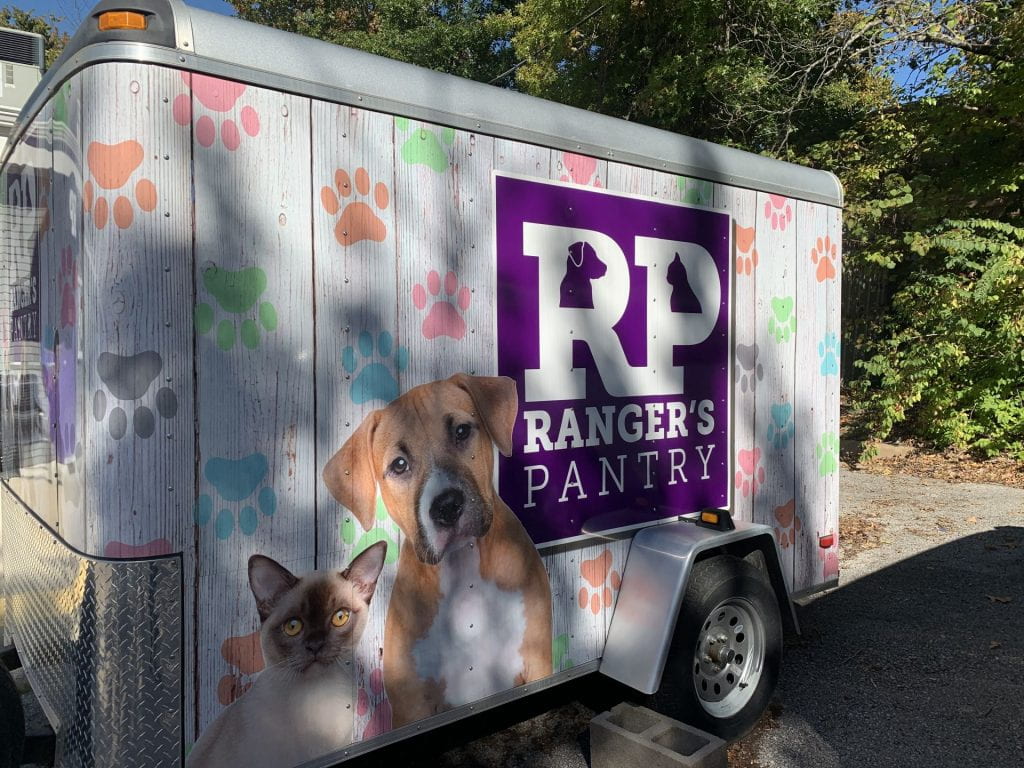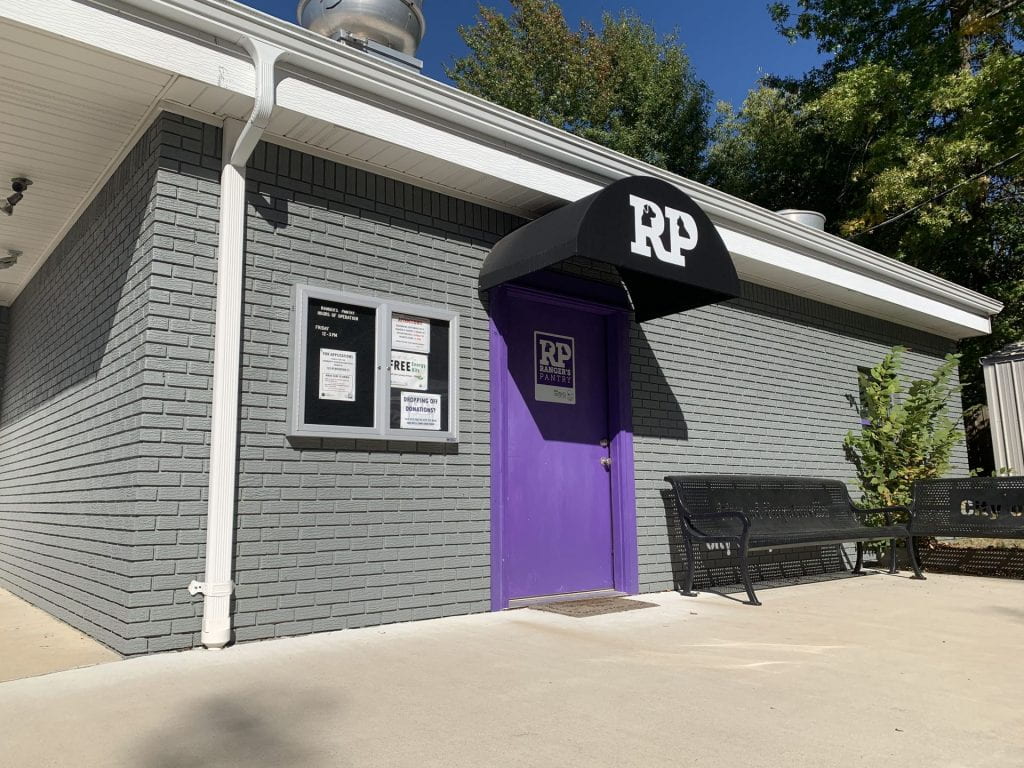Washington County Jail Releases Inmates, Dozens Homeless, Amid COVID-19

By Michael Adkison
The Razorback Reporter
The Washington County Detention Center, one of the largest jails in Arkansas, released a third of its inmates including some homeless detainees over a 10-day span in March to reduce the risk of a COVID-19 outbreak behind bars.
An analysis by Razorback Reporter of jail’s detainee roster showed a reduction of 219 persons from March 18 to March 27. The Washington County Sheriff’s Office said it aimed to release nonviolent offenders, many of whom would be monitored electronically. Of that group released, some 33, or 14%, individuals were classified as homeless.
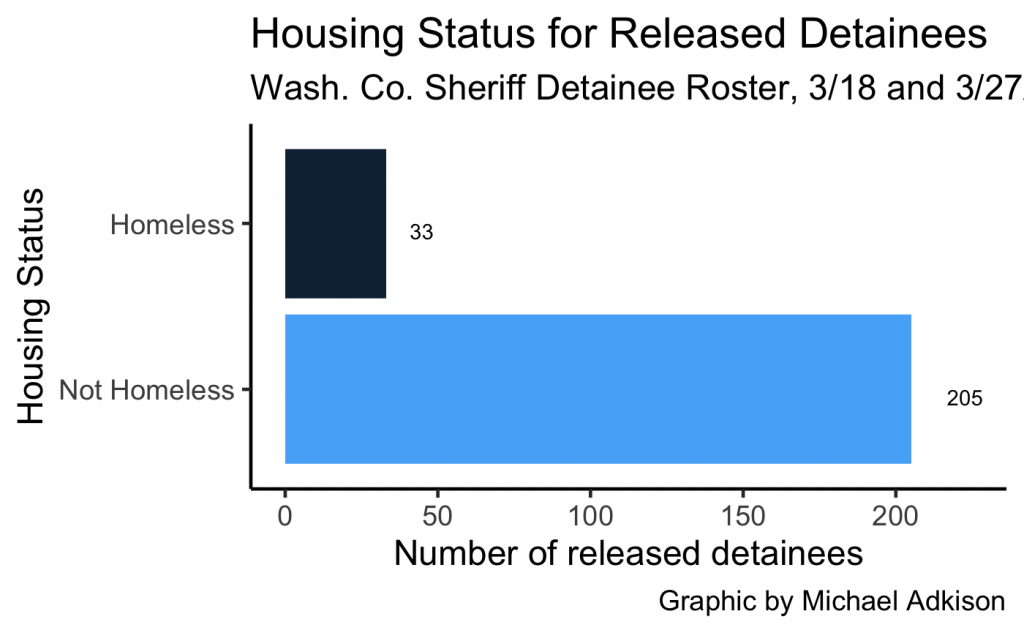
The Razorback Reporter examined home addresses and pending criminal charges for 637 detainees listed on March 18, 2020 and March 27, 2020. Homeless detainees were determined by looking at their addresses on the roster; some were listed as homeless while others listed the address of a local homeless shelter or a motel.
“Being homeless was not in our criteria regarding release,” Kelly Cantrell, Washington County Sheriff’s Department spokeswoman, said in an emailed statement, “but we are providing information to individuals upon their release who may be homeless.” Sheriff’s Department officials did not return requests for interviews.
Containing spread of the virus has been a prominent topic at the Washington County Sheriff’s Department. Sheriff Tim Helder has endorsed self-quarantining as an effort to prevent spread of the disease. Helder himself was in self-quarantine in March after his son was exposed to the virus. Sheriff Helder tested negative for COVID-19 and has since returned to work.
———————————————————–
See Details of the Razorback Reporter Analysis:
https://profrobwells.github.io/HomelessSP2020/Washington_Co_Inmates_3-29-2020.html
———————————————————–
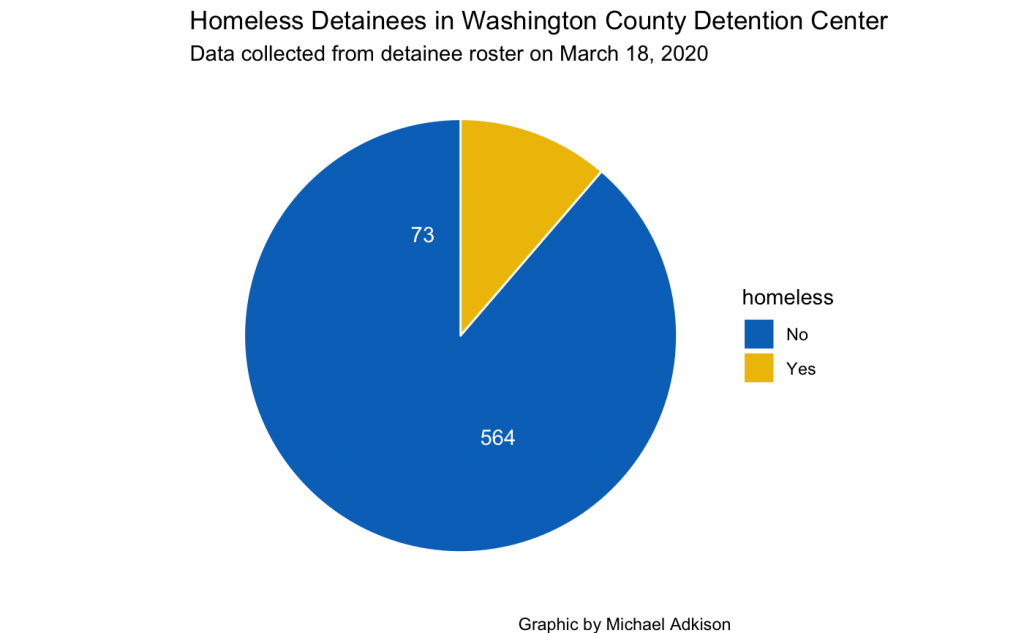
Kevin Fitzpatrick, a University of Arkansas sociology professor and expert on local homelessness, said that releasing these nonviolent inmates was the right response for the detention center.
“Those individuals could and should be released for further adjudication at a time when the coronavirus threat is no longer the case in NWA,” Fitzpatrick said prior to the release.
The sheriff’s department said those detainees released were as nonviolent offenders. The Razorback Reporter analysis showed around three-quarters of the released homeless detainees had administrative charges, and nearly half were charged with drug-related crimes.
In general, homeless people released from jail have particular difficulty in finding housing, according to Nick Robbins, executive director of Returning Home, a transitional housing initiative in Springdale, Arkansas, One homeless advocate, Alvin Davis, said there is little support for people released from jail.
“The convicts that come out of jail…they let them out a two o’clock in the morning, there’s no ORT (Ozark Regional Transit) and they have to walk somewhere, they have no place to go,” said Davis, a homeless veteran.
At least six of the detention center inmates and five released detainees listed the 7Hills Homeless Center as their address, which is about 1 mile away from the detention center.
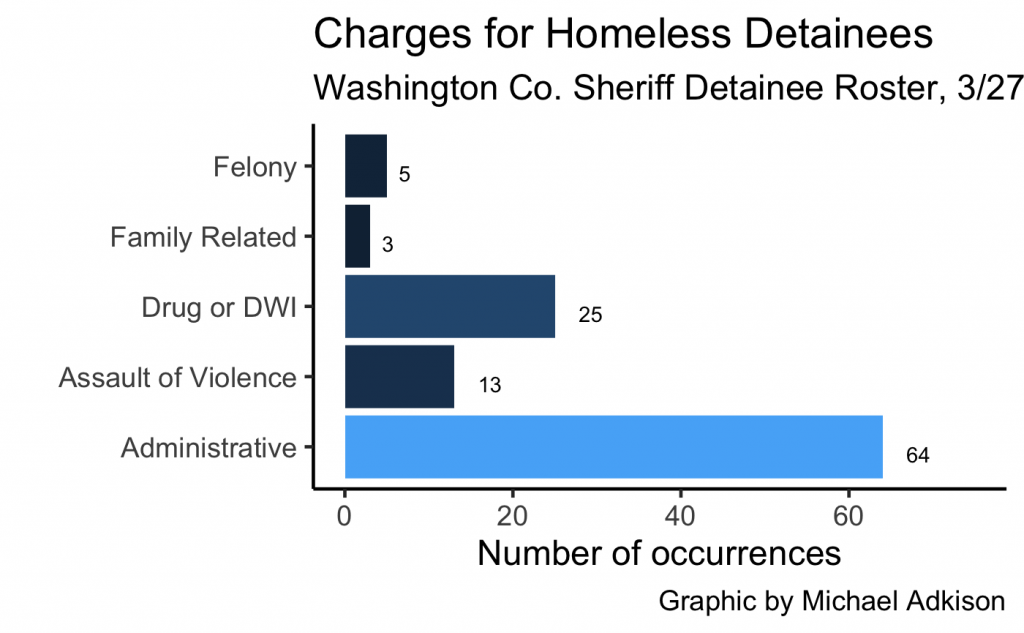
Interviews with homeless people revealed significant problems finding housing if they have a criminal record. Waylon B. Sessions said his family is living in an apartment, but he formally cannot live with them due to his criminal record. “I cannot be put on the lease, or they would not have gotten the apartment,” he said.
The Washington County Detention Center has had a significant issue with overcrowding prior to the COVID-19 outbreak. In December, there were some 90 detainees sleeping on mats on the floor. In an open letter from March 2019, Sheriff Helder said he has been pushing to ease overcrowding since 2014 and called for a jail expansion.
“We have been very aggressive administratively, releasing misdemeanor and non-violent offenders at a rate of approximately 200 per month,” Helder said in the open letter.
Helder proposed a $38 million, 600 bed expansion of the jail in 2019, which was rejected by Washington County justices of the peace.

“We’re going to have to have an expansion,” Helder said in 2019. “Look at our homeless population and how it’s grown in this area.”
A review of detainee records showed most of the homeless inmates still in the detention center have administrative charges, although some have felony, violent, or drug charges.
Inmates within the Detention Center fluctuate greatly—some detainees would be released after only a few days. As a result, the number of homeless individuals varies from day to day.
“A lot of these folks just need to be dried out, treated, and get back on their feet,” Helder said. “We can be part of that, but it all takes money.”
–Whitney King and Rob Wells contributed to this report.
Michael Adkison is a student at the School of Journalism and Strategic Media at the University of Arkansas

